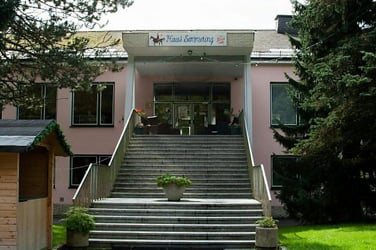On Monday the Interior Ministry announced that the former hotel Haus Semmering would provide accommodation for 150 asylum seekers, and on Tuesday the first occupants moved in, mayor Reinhard Reisinger (SPÖ) said on Wednesday.
SPÖ social affairs minister for Styria Siegfried Schrittwieser said that the Interior Ministry had spoken of a plan to find accommodation in the area but no one had said it would be so large. “This is unacceptable,” he said.
The owner of the former three-star hotel is a Slovakian entrepreneur who reportedly offered it to the government as her children had no interest in running it. The Interior Ministry said on Wednesday that it would not be a reception centre, like Traiskirchen in Lower Austria, but a child care facility.
Reisinger said that initially the ministry plans to accommodate between 100 and 150 refugees but he fears that the hotel will eventually be “crammed full” as it has room for around 300 beds.
There are already 70 asylum seekers who are being housed in the community. “We’re talking about 360 strangers coming to live in a small village of just 600 houses,” the mayor said.
“People are talking about selling their homes and moving away, and their children are scared,” he added. The local council said the ministry was creating “unreasonable ghettoes” and said that the accommodation should be spread out more fairly across the provinces.
Styria’s governor Franz Voves (SPÖ) said that legally there is little that the province and the community can do.
The Interior Ministry has said that it doesn’t plan to house more than 200 asylum seekers in Spital am Semmering.
The hotel is still listed on online travel booking sites, and the reviews vary greatly.



 Please whitelist us to continue reading.
Please whitelist us to continue reading.
Member comments